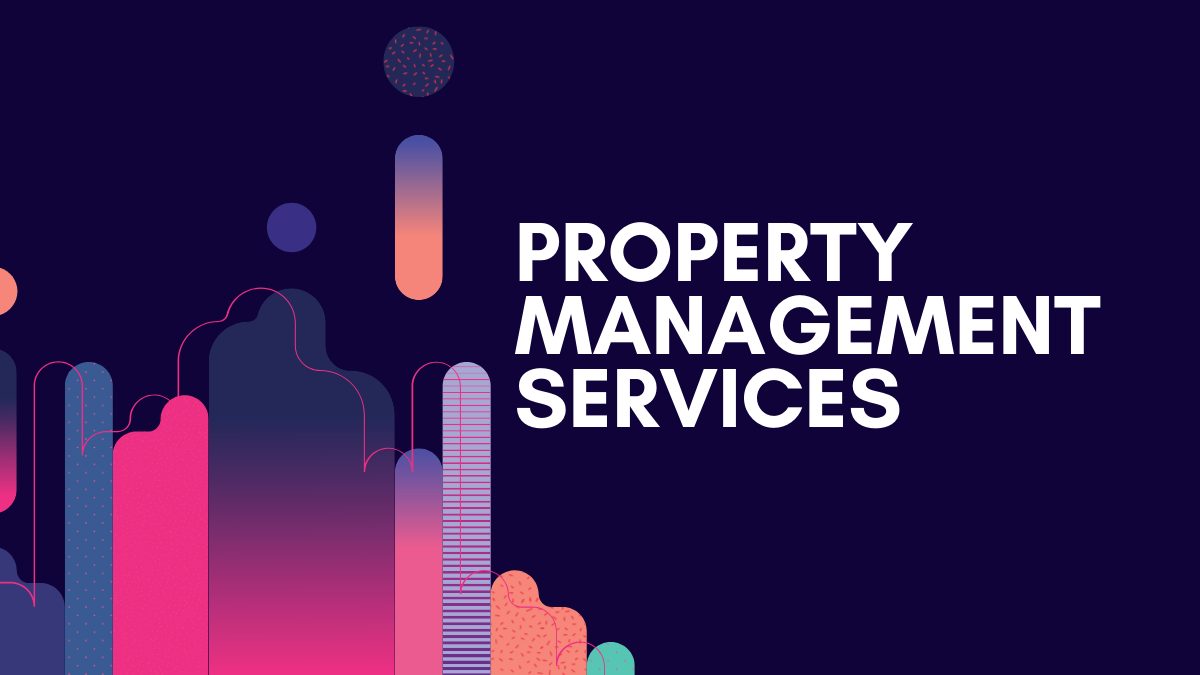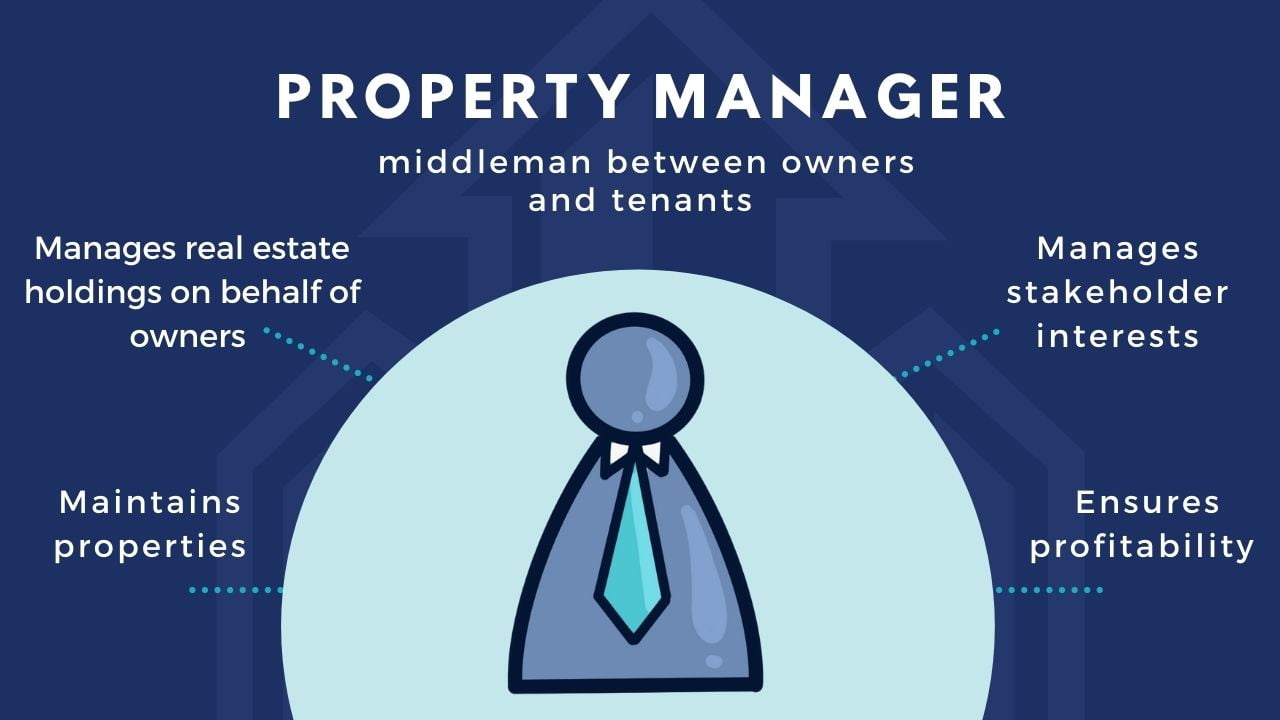Boosting Curb Appeal: property management ri’s Approach to Visual Property Marketing
The Relevance of Dependable Home Management in Making The Most Of Rental Revenue
Trustworthy building monitoring plays an important duty in making the most of rental earnings. It entails various aspects such as lessee screening, maintenance, and efficient lease collection. Building supervisors should browse legal laws while cultivating favorable lessee partnerships. These aspects add to boosting and decreasing jobs cash flow. Understanding the intricacies of home administration can noticeably impact total productivity. What approaches can homeowner employ to assure their investments yield the very best returns?
Understanding the Role of Residential Property Management
While many homeowner might take too lightly the complexities entailed, understanding the duty of residential property administration is necessary for maximizing rental earnings. Residential or commercial property administration includes various obligations, including marketing the home, managing tenant relationships, and making certain compliance with local laws. Effective home monitoring can lead to minimized vacancy rates and enhanced lessee fulfillment, both of which contribute to consistent cash flow.Additionally, residential property supervisors are accountable for maintaining the residential or commercial property, addressing fixings promptly, and performing normal evaluations. This proactive method not just maintains the building's value but additionally boosts the renter experience. Home supervisors can carry out critical pricing and lease contracts that line up with market trends, optimizing rental revenue.
The Effect of Renter Testing on Rental Earnings
Occupant testing plays an essential role in identifying rental earnings security and residential property administration success. By completely assessing prospective occupants, home managers can recognize individuals that are most likely to pay rental fee promptly and maintain the building properly. Efficient renter screening generally consists of background checks, credit report evaluations, and rental history examinations, which aid alleviate the risks related to problematic tenants.A reputable renter option procedure reduces the chance of late payments and expulsions, both of which can exceptionally affect capital and profitability. In addition, selecting high quality occupants cultivates a positive rental experience, motivating lease revivals and lessening jobs. On the other hand, inadequate testing can result in monetary losses, raised turnover, and prospective damages to homes. Inevitably, a tactical approach to lessee testing not only enhances rental earnings but additionally adds to the lasting sustainability of home monitoring procedures.
Upkeep and Repair Works: Keeping Residence Eye-catching
Reliable residential or commercial property maintenance and timely repairs are important for preserving the appeal and worth of rental properties. Normal inspections can determine prospective problems prior to they escalate, making sure that residential properties remain in top problem. This proactive approach not just boosts occupant complete satisfaction but also decreases long-term prices associated with comprehensive repairs.Addressing upkeep requests without delay is crucial, as it fosters a positive landlord-tenant relationship and encourages tenants to renew their leases. A well-kept property draws in quality renters, which can lead to greater rental rates.Moreover, buying aesthetic renovations, such as landscape design and interior updates, can substantially boost a residential or commercial property's marketability. Residential or commercial property supervisors have to prioritize maintenance routines and maintain open lines of communication with renters to help with timely coverage of problems. By focusing on repair and maintenance, homeowner can maximize their rental income while guaranteeing their investments remain eye-catching and competitive within the marketplace.
Efficient Lease Collection Methods
Reliable rental fee collection techniques are vital for ensuring a consistent income stream from rental homes. Implementing automated repayment systems can improve the procedure, making it hassle-free for both lessees and proprietors. Additionally, developing clear payment plans assists establish assumptions and lessens misunderstandings concerning lease due days and charges.
Automated Repayment Solutions
While typical lease collection approaches commonly result in hold-ups and problems, automatic settlement systems offer a streamlined service that enhances effectiveness for residential or commercial property managers. These systems help with prompt transactions, minimizing the risk of late payments and reducing the management burden related to handbook processing. By allowing occupants to set up automatic withdrawals or make on the internet payments, residential or commercial property managers can enhance capital and ensure a constant earnings stream. Furthermore, automated systems typically come with built-in coverage attributes, allowing building managers to track payments, generate monetary statements, and quickly recognize any kind of disparities. As technology remains to breakthrough, incorporating computerized repayment solutions comes to be significantly crucial for optimizing rental income and keeping solid landlord-tenant connections.
Clear Repayment Policies
Clear settlement plans work as a structure for successful rental fee collection techniques. These policies detail the expectations for lessees relating to settlement methods, due dates, and late charges, cultivating a clear relationship in between property owners and tenants. By developing clear guidelines, building managers can minimize confusion and conflicts over payment terms. Normal communication of these policies assurances occupants continue to be informed about their duties, enhancing conformity and prompt payments. Furthermore, incorporating multiple settlement choices can accommodate varied occupant choices, boosting general contentment. Effective enforcement of these plans, alongside regular follow-up on late repayments, better enhances the value of financial accountability. Inevitably, clear settlement policies not only enhance the rental fee collection procedure yet additionally add to optimizing rental revenue for residential property owners.
Navigating Lawful Laws and Conformity
Navigating legal guidelines and compliance is essential for effective residential property management. Comprehending local laws, the fundamentals of lease agreements, and safety conformity standards assures that property managers protect their financial investments while providing a protected atmosphere for lessees. This fundamental expertise not just lessens legal risks yet also boosts the total rental experience.
Understanding Regional Legislations
Recognizing local laws is crucial for property supervisors to ensure conformity and shield their financial investments. These laws vary considerably from one jurisdiction to an additional, covering aspects such as tenant civil liberties, eviction processes, and home upkeep standards. By acquainting themselves with these legislations, building managers can avoid expensive lawful disagreements and guarantee smooth operations. In addition, expertise of zoning regulations and restrictions can prevent problems connected to property use and development. Conformity with neighborhood housing codes is important to preserving property value and occupant complete satisfaction. Ultimately, a comprehensive understanding of local regulations encourages home managers to make enlightened choices, promoting a trusted administration method that takes full advantage of rental earnings while securing both the property and the occupants' legal rights.

Lease Contract Fundamentals
A well-structured lease arrangement works as the foundation of a successful rental connection, laying out the rights and responsibilities of both proprietors and tenants. Important parts consist of the rental quantity, payment terms, and period of the lease, which provide clearness on monetary obligations. Furthermore, the arrangement ought to define upkeep responsibilities, detailing that is answerable for repair services and maintenance. Vital lawful arrangements, such as discontinuation conditions and notice periods, assurance conformity with local policies and safeguard both celebrations. Consisting of plans on pets, subletting, and residential or commercial property check here alterations can additionally protect against future disagreements. A thorough lease contract not just fosters trust fund but likewise reduces risks, ultimately improving the residential or commercial property's earnings and assuring a smooth rental experience.
Safety And Security Compliance Criteria
While property owners seek to create a risk-free and welcoming atmosphere for occupants, compliance with security criteria is necessary to satisfying legal commitments and ensuring lessee health. property management in Rhode Island. Adhering to regional, state, and federal laws is extremely important, as infractions can cause considerable penalties and legal effects. Property supervisors have to stay notified about security codes, consisting of fire safety, electrical standards, and structure integrity. Regular evaluations and maintenance are essential in recognizing potential hazards and resolving them immediately. Additionally, effective communication with lessees relating to safety protocols fosters a complacency. Ultimately, focusing on safety compliance not just secures lessees but likewise improves the building's credibility, contributing to greater renter retention rates and maximizing rental income in time
Enhancing Occupant Retention With Great Management
Occupant retention is a considerable facet of successful residential or commercial property administration that straight impacts rental income security. Reliable monitoring methods promote a positive living environment, which motivates tenants to renew their leases. Interaction plays a crucial function; property managers who keep open lines of discussion can quickly attend to renter worries and boost satisfaction.Additionally, regular upkeep and prompt repair work show a commitment to tenant comfort, additional strengthening their loyalty. Providing versatile lease alternatives or incentives for early revivals can additionally advertise retention.Creating a feeling of community through arranged events or social celebrations can make lessees really feel more linked to their home, raising the chance of them staying long-term. Inevitably, great administration methods not only enhance occupant experiences yet also lower turn over prices, leading to increased rental revenue and reduced job expenses. Such techniques are vital for building proprietors aiming to maximize their financial investment returns.
Leveraging Market Fads for Boosted Productivity
Just how can residential property managers effectively profit from present market fads to improve success? By remaining educated and adapting strategies appropriately, residential property managers can make the most of rental revenue. Evaluating local market information allows them to recognize need changes, allowing critical prices changes. For example, throughout durations of high need, increasing rental rates can considerably improve profits, while in slower markets, offering motivations can draw in tenants.Additionally, accepting modern technology can enhance procedures and reduce costs, better increasing earnings. Making use of information analytics devices assists supervisors predict market fads and lessee preferences, enabling customized residential or commercial property upgrades and features that cater to current desires.Finally, involving in effective advertising methods, such as leveraging social media and on the internet platforms, can enhance presence and tenancy rates. property management in Rhode Island. By integrating these techniques, building managers can not only react to but likewise expect market changes, inevitably bring about raised earnings and lasting development in their rental profiles

Frequently Asked Questions
How Do Property Managers Establish Rental Pricing for My Home?
Home supervisors evaluate different elements to determine rental rates, including regional market trends, comparable properties, home condition, and need. They also consider seasonal variations and financial indications to establish successful and competitive rental rates.
What Costs Are Typically Connected With Hiring a Home Management Business?
Building administration companies normally bill fees such as management costs, renting charges, upkeep costs, and sometimes added costs for solutions like advertising and marketing and renter screening. These charges can vary significantly based on area and service level provided.
Can Property Managers Assist With Expulsions if Necessary?
Residential or commercial property supervisors can help with evictions by taking care of legal documents, representing property managers in court, and making sure conformity with neighborhood laws. Their experience improves the process, minimizing anxiety and possible problems for homeowner throughout tough scenarios.
Just How Typically Will I Obtain Financial Information From My Property Manager?
The regularity of monetary records from a home manager varies by agreement. Normally, homeowner receive month-to-month declarations detailing revenue, expenses, and various other economic metrics, making sure transparency and notified decision-making concerning their rental buildings.
What Should I Try to find When Selecting a Residential Property Management Business?
When picking a building administration firm, one need to consider their experience, credibility, interaction skills, monitoring costs, lessee screening processes, upkeep solutions, and economic reporting capabilities to guarantee reliable building oversight and maximized returns. Property monitoring incorporates numerous obligations, consisting of marketing the building, taking care of occupant relationships, and making sure compliance with neighborhood laws. Reliable building administration can lead to minimized vacancy rates and raised renter fulfillment, both of which add to consistent cash flow.Additionally, property managers are accountable for keeping the building, attending to repair services promptly, and conducting routine evaluations. By completely evaluating prospective occupants, residential property managers can recognize people that are much more likely to pay rent on time and preserve the property responsibly. A well-maintained residential property draws in high quality occupants, which can lead to greater rental rates.Moreover, investing in visual enhancements, such as landscaping and interior updates, can substantially increase a residential or commercial property's bankability. Property supervisors examine different elements to identify rental rates, consisting of regional market trends, comparable homes, property problem, and demand.